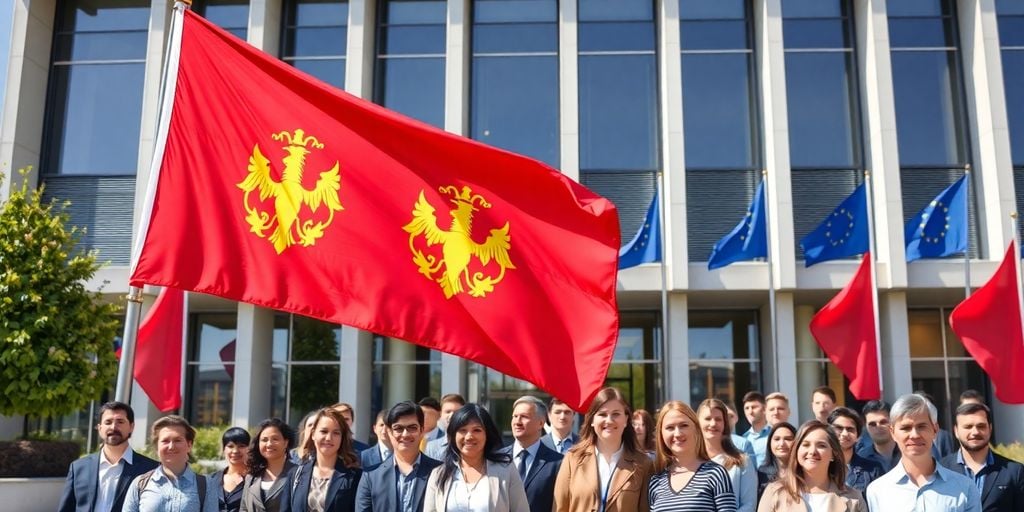Montenegro is making strides in its bid for European Union membership, with recent progress in closing negotiation chapters and strong endorsements from EU officials. However, challenges remain, particularly concerning the rule of law and political will, which could impact its ambitious 2028 accession target.
Montenegro’s EU Accession: Progress and Hurdles
Montenegro has provisionally closed Chapter 5 on public procurement, bringing its total to seven closed chapters out of 33. This move was welcomed by the EU, with Enlargement Commissioner Marta Kos congratulating Prime Minister Milojko Spajić and reiterating support for Montenegro’s goal to conclude negotiations by the end of 2026. European Council President Antonio Costa praised Montenegro as a "front-runner" in European integration, highlighting its progress among Western Balkan countries.
Key Takeaways
- Chapter Closure: Montenegro has provisionally closed Chapter 5 on public procurement, marking its seventh closed chapter. This follows the closure of Chapters 7 (intellectual property), 10 (information society and media), and 20 (enterprise and industrial policy) in late 2024.
- Ambitious Timeline: The Montenegrin government aims to close all negotiation chapters by the end of 2026 and become the 28th EU member state by 2028. EU officials, including President Costa, have acknowledged this ambitious target.
- EU Support: The EU continues to express strong commitment to the full integration of the Western Balkans. The provisional closure of Chapter 5 is seen as a sign of trust and momentum in the accession process.
Challenges and Criticisms
Despite the positive signals, significant challenges persist. Nikoleta Đukanović, a professor and civic activist, expressed concerns that the ambitious targets for chapter closures in 2025 are unrealistic, with only one chapter closed so far this year against a roadmap that suggested up to six. She argues that Montenegro’s progress has stagnated, particularly in the rule of law, which remains the area with the least advancement.
- Rule of Law: Critics point to a lack of progress in strengthening the rule of law, evidenced by stagnation in corruption perception indices, public distrust in the judiciary, and instances of political retribution. Issues such as electoral reform, judicial independence, and the fight against organized crime and corruption are either stalled or not effectively addressed.
- Political Will: A major concern is the perceived lack of genuine political will within Montenegro to implement fundamental reforms. Đukanović suggests that the government is "simulating the integration process" rather than truly leading it, with reforms often treated as political slogans rather than concrete actions.
- Civil Society Engagement: EU Ambassador to Montenegro, Johann Sattler, emphasized the crucial role of civil society in the accession process, stressing that EU membership is a shared responsibility requiring effort from all stakeholders. Civil society organizations have highlighted issues such as political influence in public procurement and delays in appointing independent regulatory bodies.
The Path Forward
Both EU and Montenegrin officials underscore the importance of continued dialogue and reform. Predrag Zenović, Montenegro’s Chief Negotiator with the EU, affirmed the government’s commitment to addressing recommendations from the European Commission’s latest report. The EU’s willingness to make enlargement credible again, coupled with Montenegro’s strategic efforts, will be crucial for achieving its membership aspirations.
Sources
- Montenegro closes chapter 5 on public procurement in negotiations with the EU, European Western Balkans.
- [EWB Interview] Đukanović: Without fundamental changes in priorities, Montenegro’s EU membership could be
delayed, European Western Balkans. - Dialogue at all Levels is Key to the Negotiation Process, EEAS.
- The European Council president praises Montenegro’s advance on the path to joining the EU, AP News.
- Are Albania and Montenegro on the fast track to EU membership?, Atlantic Council.






